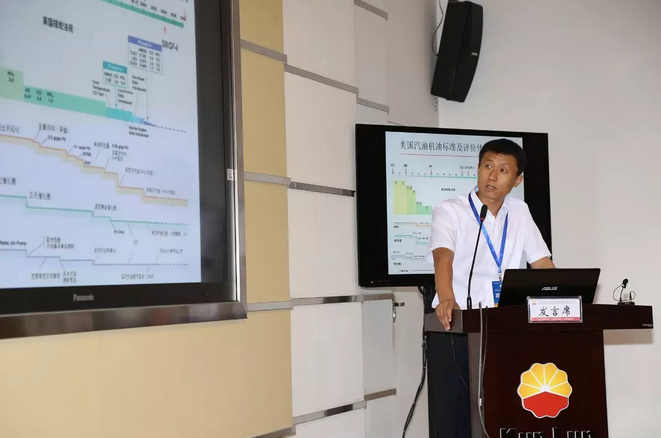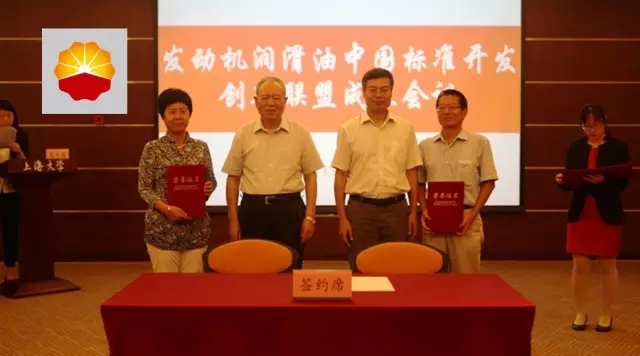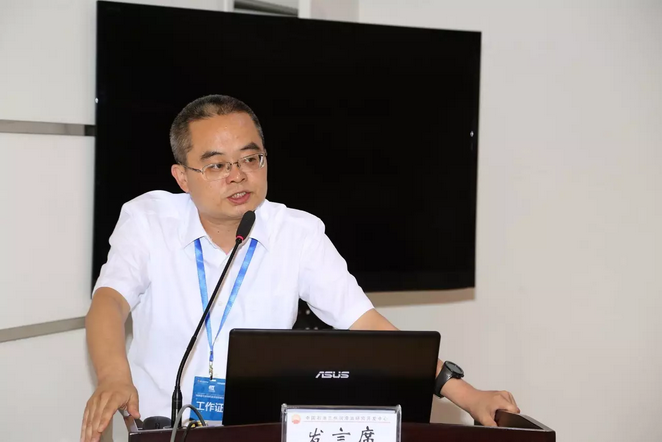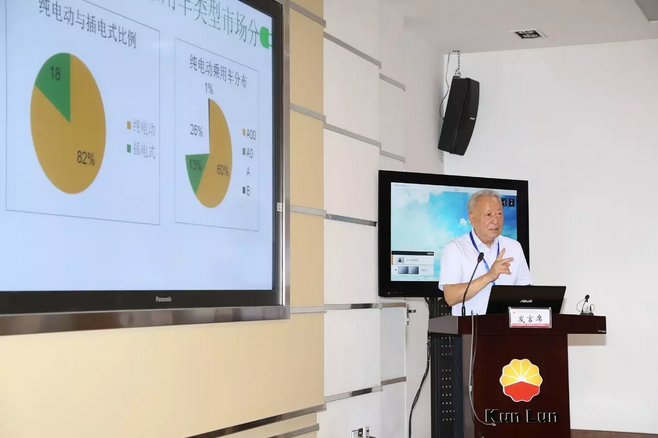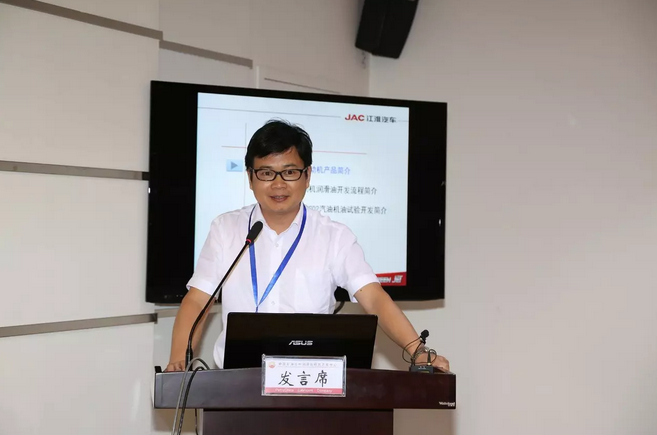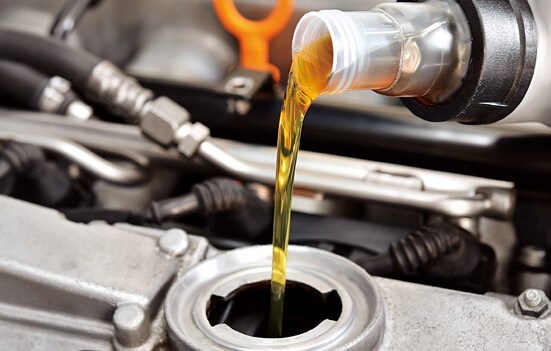With the year-by-year increase in China's auto consumption demand and retention, the automotive industry technology is also rapidly changing. The engine is the heart of the car. As the engine's "fluid component", it has the engine "blood" of lubricant, which can reduce the loss of the engine's internal metal components and play a key role in improving engine protection and performance. With the implementation of the national “Made in China 2025†strategy and the upcoming “National VI†emission standard and “dual-integration†policy, driven by engine technologies such as high pressure common rail, EGR technology, turbocharging technology, and lightweight technology, The new fuel consumption policy and the reform of engine energy-saving and emission-reduction technologies for motor vehicles have also put forward higher requirements for engine lubricating oil, and the technical upgrading of engine lubricating oil has become inevitable. The reporter recently learned from the Seminar on Lubricant and Engine Technology Trend organized by Auto and Sport Evo magazine that in the critical period when current engine lubricant standards and technologies need to be upgraded, car companies and oil companies will push their pressures. "Car-Oil" jointly initiated the evaluation method of self-contained integrated gantry. By establishing a new standard for China's engine lubricating oil, the company will face challenges with technology and counter-challenge as opportunities, and jointly usher in a new round of development. The current standard is not in line with the new national conditions Over the years, the quality and performance of automotive engine oil (hereinafter referred to as “oilâ€) have been continuously developed along with the changes in the design and driving conditions of gasoline engines and the requirements for environmental protection and energy conservation. Until 1947, there was no engine oil classification specification based on fuel type until the American Petroleum Institute API released the first engine oil specification for gasoline engine oil and diesel engine oil, respectively, in 1952. In the field of gasoline engine oil, China has copied the US API gasoline engine oil standard since 1995, and the bench test method has also fully adopted the ASTM bench method. The current standard of gasoline engine oil was released in 2006 and has not been updated in 10 years. The highest standard is SL/GF-3. While the current mainstream gasoline engine oil level in China has been upgraded to the SM/GF-4 specification, the current gasoline engine oil standard has obviously not kept up The development of the times. "One of the reasons for the slower renewal of China's gasoline engine oil standards is that China does not have its own rig evaluation method," said Jin Zhiliang, deputy director of the evaluation center of the Lanzhou Lubricating Oil Research and Development Center of China National Petroleum Corporation, at the seminar on lubricating oil and engine technology trends. Lubricants and Engine Technology Trends Workshop Jin Zhiliang pointed out that the U.S. bench method uses the representative engine of the U.S. market as the testing machine, while the U.S. engine is somewhat different from the Chinese engine. The U.S. is dominated by large displacement, while China is mainly economical with small displacement. The product performance requirements are also not the same. Therefore, it is urgent to develop our own rig test method based on the characteristics of our own brand engine. It is understood that with the continuous advancement of independent brand engine technology, China has the conditions to independently develop bench test methods. In response to the increasingly stringent requirements for energy conservation and environmental protection in China, the host plants have developed and introduced direct-injection supercharged engines, such as the JAC 1.5TGDI engine, the Geely 1.8TD engine and the Great Wall 1.5T engine. China's engines are generally faced with low-speed pre-ignition problems as well as foreign counterparts and need to develop corresponding anti-early-fired oil products. However, due to the lack of rig evaluation methods, it is urgently needed to develop cooperatively low-speed pre-ignition bench test methods. Jin Zhiliang, Deputy Director of the Assessment Center of China National Petroleum Corporation Luzhou Lubricant Research and Development Center As for the current status of China's gasoline engine oil, Jin Zhiliang suggested that a representative domestic gasoline direct-injection and turbocharged engine should be selected at present, and a low-speed pre-ignition bench test method should be developed based on the technical characteristics of China’s engines to establish an evaluation standard to fill in China’s Lubricant pedestal evaluation technical field is blank, promoting the independent development of China's lubricating oil bench evaluation system. At the same time, the Institute of Internal Combustion Engines and the Institute of Automotive Engineering serve as a platform to form a method development project group for the bench method and form a method industry standard for the adoption of new oil standards, and to build corresponding platforms at the main engine plant and oil agent company. Racks, compare and standardize work to publish industry standards as soon as possible. Similar to gasoline engine oil, in the diesel engine oil field, China also refers to the US API gasoline engine oil standard and the ASTM bench test method. However, in recent years, China's heavy-duty diesel engine has basically realized technology autonomy, and the model that adopts the API specification is no longer relevant. Adapting to China's national conditions, meeting the low-emission engine hardware design requirements, realizing the durability of the engine, long oil change intervals, and improving fuel economy, all drive the diesel engine oil specification to further upgrade. The three parties jointly push forward the new national standard for engine oil In the urgent need of the industry, on September 13, 2016, the Chinese Society of Internal Combustion Engines initiated the China Automotive Engineering Society, PetroChina, Sinopec, China FAW, Jianghuai Automobile, Dongfeng Motor, Weichai Power, Handi Lubrication, and The China Standard Development and Innovation Coalition (hereinafter referred to as the “Innovation Allianceâ€), a joint venture of 15 chemical industry leaders including Hefei Chemical, Ruifeng, and Beiqi Foton Daimler, was officially established in Shanghai. The Innovation Alliance adheres to the principles of “development, neutrality, and professionalismâ€, and aims to change the status of China’s engine lubricants that fully adopt foreign standards. Through industry technical collaboration, it will jointly establish a lubricant standard system and lubricant product standards that meet the characteristics of Chinese engine technology. Promote the independent innovation and healthy development of China's engine and lubricant industry. Engine Lubrication China Standard Development and Innovation Alliance Conference After the establishment of the Innovation Alliance, Kunlun Lubricant has invested in the construction of a diesel engine bench test platform system in Lanzhou. "According to the demand of domestic OEM's for internal combustion engine oil, drawing on experience in Europe and the United States, establishing an association formed by the automotive industry and the lubricant industry, the time is ripe for the establishment of an independent gantry assessment system and an independent internal combustion engine oil specification." China National Petroleum Lanzhou Lubricants Xie Jingchun, deputy chief engineer of the Research and Development Center, said at the seminar on lubricants and engine technology trends: “The key step at the moment is to establish the Innovation Alliance for Engine Lubrication China Standards, and to coordinate relevant parties of industry organizations, OEMs, and lubricant suppliers. Work together to establish an independent specification engine rig evaluation and certification system; establish an oil specification certification committee; form a voting mechanism for oil product evaluation indicators and oil product specifications; standardize the gantry methods and establish an assessment monitoring mechanism.†Deputy Chief Engineer of Lanzhou Lubricant Research & Development Center, PetroChina Xie Xianchun It is understood that the overall goal of the newly established innovation alliance is to complete the “Comprehensive Bench Evaluation Method†in 2019, amend the “Diesel Engine Oil†standard GB11122-2019, and increase the number of D1-2019 grades for approval. Four key projects will be implemented mainly, of which the core project will be a comprehensive engine pedestal test method and the construction and testing of 3-4 integrated gantry; the supporting project 1 will include grading rules and laboratory requirements; the supporting project 2 will include the laboratory and Product certification system - named system; demonstration projects include the national standard GB11122 revision. “At present, the Innovation Alliance has established an expert group to guide the revision and development of the standards system and product standards, organize technical seminars and review of standards, and is expected to complete the research on the engine lubricating oil Chinese standards system by 2020 and assist the petrochemical standards committee. Revise China's diesel engine oil lubricants industry standards.†At the seminar on Lanzhou Lubricants and Engine Technology Trends, Xie Jingchun introduced the project progress of the Innovation Alliance. He said: “The innovation alliance expert group will be on a quarterly or semi-annual basis. Organize seminars on the typical engine selection and operating condition cycle of the engine lubricant classification number D1 and naming principle, 6DM3\DC11\WP13\ISG, and so on, and the rigs shall be confirmed by voting with different limits.†“After the first vote of the expert group, the current revision of the Lubricant Standard, Guiding Petrochemical Standardization Committee, will determine the viscosity classification, physical and chemical indicators (low ash or no requirement) and simulation evaluation will continue the inheritance. The standard fuel, standard test pieces and bench method will be Localize innovation, use a representative engine to develop a 300-500h integrated bench, and evaluate clean, anti-wear, dispersion, oxidation, and other methods. The new standard will meet the national V or National VI emission potential and be backwards compatible.†Xie Jingchun said. According to reports, on the June 16th of this year, the League’s board of directors, through the unit’s application and the voting members of the participating leagues, Chevron, Afton, Infineum, Lubrizol, Southwestern Institute, Intertek, etc. 8 The family unit joins the innovation alliance. "Car-Oil" join forces to reverse challenges as opportunities According to the current status of China's lubricating oil evaluation standards, Wang Binggang, head of the supervision and advisory expert group of the National 863 Program “Energy-saving and New Energy Vehicles†major project, points out that lubricating oil is a fluid component of the engine and should be an important part of engine R&D. Automobile engines and lubricants should work closely together. Through the cooperation of the OEM and the oil agent companies, the Company independently developed lubricant evaluation methods to fill gaps in the field of lubricating oil evaluation methods in China. Wang Binggang, Team Leader of Supervision and Expert Group on Major Projects of “Energy Saving and New Energy Vehicles†in National 863 Program Xie Jingchun also emphasized that current engine OEM manufacturers, petroleum and petrochemical industries, and third-party laboratories should strengthen cooperation. For the tripartite cooperation program, he gave a proposal: "The diesel engine OEM manufacturer shall provide control engine for research, test pieces, control information of the engine electronic control system, engine bench test technical support, and test bench construction and method development. In addition, it organizes vehicle tests, and the petroleum and petrochemical industry needs to install and debug test benches, conduct research on test conditions and test procedures, provide bench reference oils and test oils, and make good TGA soot measurements and surface topography measurements. Special oil evaluation work, and do a good job of engine component durability evaluation and rater training.After determining the gantry route, the third-party laboratory needs to establish a corresponding rig test, carry out reproducibility of test methods, establish laboratory monitoring and Certification mechanism and third-party test evaluation." It is understood that currently China FAW, Dongfeng Automobile, Weichai, Beiqi Foton Daimler and other four host plants have provided FAW CA6DM3, Weichai WP13, Beiqi Cummins ISG and Dongfeng DCI11 engines for diesel engine oil performance evaluation tests. In addition, JAC will also include lubricating oil as a system component in the development process, and jointly develop lubricants with Kunlun Lubricant Co., Ltd., in parallel with the engine development process. The rig experiments performed by both parties for engine lubricating oil have improved the lubricating oil and combustion effects through a full-scale bench test, successfully achieving an average friction coefficient reduction of 30%, a mechanical loss reduction of 3%-5%, and a fuel consumption reduction of 1%. . At present, the new engine oil has been applied to mass production vehicles, and it has truly realized the joint development of oil and machinery, and at the same time it has improved the technical level of engines and lubricants. In this regard, Jiang Huai Automobile deputy chief engineer and deputy director of the Technical Center Min Suhua said: “The concept of 'lubricants are parts of the car' has moved me deeply. Our OEMs should also change their thinking mode and use lubricants as their The system components are incorporated into the development process, achieving effective energy conservation and consumption reduction, and actively meeting the 'National 6' emission standards and the arrival of the 'double-integration' policy." JAC currently integrates R&D, manufacturing, sales, and service of commercial vehicles, passenger vehicles, and powertrains. It has an annual output of 900,000 complete vehicles, 800,000 engines and related core components, and adheres to energy-saving and emission-reduction as an independent innovation. The launch of its focus, the focus on the customer value of the entire life cycle, and the establishment of a competitive advantage in the future of self-owned brands have become the goals of its low-carbon strategy. At the Seminar on Lubricants and Engine Technology Trends, Qian Dude, Director of the Engine Experimental Development Research Institute of the Jianghuai Automobile Company, described the joint development process of “vehicle-oilâ€. He mentioned that in the development process, Jianghuai Automobile always upholds synchronization. The concept of opening and special verification is based on the conceptual design of lubricating oil, matching analysis of lubricating oil, development of lubricating oil, test and development of engines, and test and development process of complete vehicles. The development and verification of lubricating oil is carried out in five stages. Qian Dude, President of Jianghuai Automobile Engine Experimental Development Research Institute Qian Dude said that in the concept design and detailed design of the engine, Jianghuai Automobile defines the specifications and requirements of the lubricant according to the technical characteristics of the engine, and simultaneously carries out the conceptual design and matching analysis of the lubricant; at the stage of prototype generation reagent testing, the oil product The technical partners completed the formula design, simulation test and standard bench test for defining the performance requirements of lubricants; the engines and vehicles independently developed by JAC were used in the second-generation reagent testing and mass production evaluation phases, combining the energy-saving and long-term effects of lubricants. Requirement for environmental protection, targeted specific series of related tests, and assessment of performance and reliability of lubricating oil. He specifically introduced the JAC G01/G02 gasoline engine oil joint development project as an example. The project was conducted in accordance with the concept design of lubricants, matching analysis of lubricants, lubricant development, engine test and development, and standard vehicle test development procedures. In the conceptual design phase of lubricants, based on fuel consumption regulations and customers' requirements for extended maintenance intervals, in September 2013, Jianghuai Automobile and PetroChina developed a lubricant with a longer oil change cycle and energy-saving effect based on full technical communication. A consensus was reached on the joint development of two energy-saving and high-efficiency gasoline engine oils in the development of the 1.5TGDI engine. The development target was to reduce the average friction coefficient by 30%, reduce the engine mechanical loss by 3%-5%, and reduce the NEDC cycle oil consumption by 0.5%-1.0. %, the oil mileage meets 7500km and 10000km. In the lubricant matching analysis stage, synchronized with the detailed engine design process, CAE analysis and design verification are performed to predict that the 5W-30 oil meets the lubrication requirements of the crankshaft linkage system, and the engine and bearing lubrication performance is good. In the lubricating oil development stage, a prototype reagent test was conducted. The oil product partner PetroChina Lanzhou Lubricant Research and Development Center completed the lubricant formula design, physics and chemistry test, simulation test machine test, and standard bench test to confirm that the lubricating oil friction coefficient was reduced ( 33.3%-62.5%), improved fuel economy and good performance. In the engine test development stage, second-generation prototype reagent tests were carried out. JAC conducted lubricating oil test studies, viscosity temperature characteristics, lubrication system response, and extreme working conditions lubrication according to engine technical characteristics, energy saving, environmental protection, and long-term requirements. , Comprehensive performance of lubricants, evaluation of energy-saving effects, fuel dilution adaptability, user comfort, oil change cycle assessment, low-rate pre-ignition suppression, and adaptability of post-processing and other ten tests. The test results show that the viscosity and temperature characteristics of the lubricant developed in line with the design requirements, with energy-saving basis, the engine lubricating system respond quickly, good pressure protection; extreme conditions and comprehensive performance tests show that the lubricating oil wear resistance, clean dispersion relative SJ 10W-30 is significantly improved; energy-saving effect evaluation results show that the design goal is achieved (loss of mechanical loss >3%, fuel economy improvement 0.5%-1.0%); fuel dilution special test assessment confirms that the engine runs normally under strict conditions. The lubricant has suitable viscosity and excellent quality, which helps to improve the noise level of the valve system and oil pumping field. JAC also conducted a series of simulated road and conventional reliability tests. The results show that the oil quality is well maintained, and there are no abnormalities in viscosity and pH. At the same time, in the special test evaluation of advanced technologies such as in-cylinder direct injection and GPF, the oil performance also performed well. At the test and development stage of the vehicle, both parties conducted mass production evaluation. After the engine and lubricant were loaded on the vehicle, a series of special tests were conducted to confirm that the G01/G02 oil satisfies the 7500km and 10,000km oil change cycle settings. Jianghuai Automobile G01/G02 gasoline engine oil project took 27 months in accordance with the process and standards. Lubricant and engine were developed synchronously. The average friction coefficient was successfully reduced by 30%, mechanical loss was reduced by 3%-5%, and fuel consumption was reduced by 1%. At present, two energy-efficient gasoline engine oils, JAC G01/G02 5W-30, have been put into mass production on the market and customer feedback is good. During the simultaneous development of lubricants and engines, a series of corporate standards were also established and revised. There are Jianghuai Automobile's success stories first, and it is believed that the era of "car-oil" cooperation will soon come. “Lubricating oil is an important component of the engine, and auto companies and lubricant companies should jointly develop special lubricants and establish process standards to jointly cope with increasingly stringent energy conservation, emission reduction and fuel consumption policies. With the advancement of engine technology, and The drive for energy saving and emission requirements, the development of special high-efficiency lubricants, and the establishment of independent lubricant standards have become the trend of the times, said Chin Doud. Metal Machining Part,Precision Metal Cnc Machining Part,Cnc Metal Machining Part,Custom Metal Precision Machining Part Dongguan Shangjie Precision Hardware Co., Ltd , https://www.sphzincalloy.com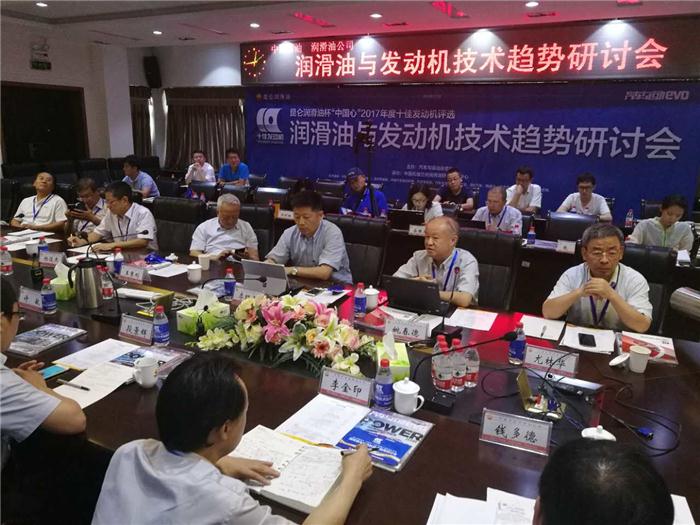
![]()
